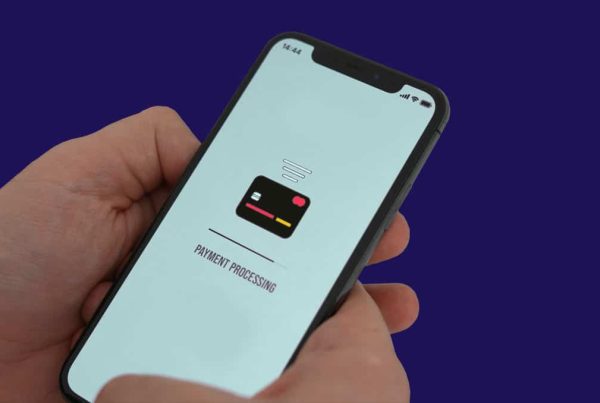Bad credit can be a stumbling block for businesses trying to open a merchant account. A business with bad credit, or a low credit score, is deemed a high-risk merchant account by account providers. While some merchant account providers may turn your business away, others will offer a bad credit merchant account.
A bad credit merchant account is a payment processing account specifically designed for businesses with low credit scores. Bad credit merchant providers enable bad credit businesses to accept credit and debit card payments, access tailored payment and security solutions, and work towards rebuilding their credit history.
By understanding when and why you need to apply for a bad credit merchant account and taking steps to increase your chances of being accepted, you can find a suitable merchant account for your business.
When You Need to Apply for a Bad Credit Merchant Account
Businesses can acquire a low credit score in various ways, such as through poor financial management or filing for bankruptcy. The risks associated with a low credit score can make it difficult for businesses to obtain a merchant account. In this situation, a bad credit merchant account can be highly beneficial to businesses.
Like standard merchant accounts, bad credit merchant accounts enable businesses with low credit scores to accept credit and debit card payments from their customers. Bad credit merchant account providers are more understanding of the challenges faced by businesses with bad credit and are more likely to approve their applications. With access to a bad credit merchant account, your business can accept and process transactions and start improving your financial situation.
You can apply for a bad credit merchant account in the following circumstances:
Have Previously Filed for Bankruptcy
Filing for bankruptcy is a legal process that offers financial relief for businesses that are unable to repay debts. While bankruptcy can provide a solution to extreme financial challenges, it can severely impact your credit score.
Merchant account providers view businesses with a history of bankruptcy as high risk. Filing for bankruptcy indicates an inability to meet financial obligations, making it difficult for businesses to obtain a standard merchant account. This makes applying for a bad credit merchant account a viable option for businesses that have a low credit score as a result of filing for bankruptcy.
Unpaid Loans or Debt
Missing loan repayments or failing to repay your debt will be recorded on your credit report, bringing down your overall credit score.
When applying for a standard merchant account, merchant account providers will review your credit history. Your low credit score and history of unpaid loans or debt will signal to providers that your business is a high risk, increasing the chances of them declining your merchant account application. In this situation, applying for a bad credit merchant account provides a viable alternative.
Inconsistent Income
Businesses with an inconsistent income stream may be deemed high risk by merchant account providers. Inconsistent income streams are risky for merchant account providers because they can indicate potential financial instability, increasing the likelihood of unpaid fees and other financial issues. This increases the likelihood that they will decline a standard merchant account application.
If your business experiences inconsistent income, applying for a bad credit merchant account may be a better option. Bad credit merchant account providers will be experienced with businesses with fluctuating income, making them more likely to accept your merchant account application.
Do Merchant Accounts Check Credit?
Merchant account providers will check your credit when you apply for a merchant account. The underwriters associated with your chosen merchant account provider are responsible for reviewing your credit history, score, business operations, and other relevant financial information. This assessment is crucial for determining the potential risk associated with offering payment processing services to your business.
Businesses can be categorised as high-risk or low-risk based on the underwriter’s review of your credit history and financial information. High-risk businesses typically have a low credit score, operate in high-risk industries, or have inconsistent income. Low-risk businesses have a strong credit history, operate in stable industries, and exhibit consistent financial performance.
By evaluating your credit history and categorising your business as high-risk or low-risk, merchant account providers can make an informed decision about whether to approve your application. If your application is approved, they will use this information to set appropriate fees, processing limits, and establish other terms and conditions for your account. This assessment helps providers manage their risk while offering payment processing services to businesses with varying creditworthiness and industry background.
Why is Bad Credit Considered High Risk?
Merchant account providers perceive bad credit as high risk due to the increased potential for financial losses. Businesses with a poor credit history are more likely to encounter issues with payment processing and financial management, which increases the financial risk for the provider.
The main concern for payment providers dealing with high-risk businesses, including those with bad credit, is the increased potential for chargebacks. Chargebacks are when a customer disputes a transaction, and the funds are returned to them by the issuing bank. Chargebacks can occur for various reasons, such as dissatisfaction with the product or service, billing errors, or fraudulent transactions.
Chargebacks can be costly for payment providers as there are often additional fees involved in the return of the funds. To reduce these risks, providers will include higher fees for high-risk merchant accounts, impose stricter terms and conditions, or decline a high-risk business’s merchant account application.
Ways to Increase Chances for Merchant Account Approval
If you have decided to apply for a bad credit merchant account, consider these tips to improve your chances of being approved:
Choose a Bad Credit Merchant Account Provider
Choosing a provider that specialises in bad credit merchant accounts can significantly increase your chances of approval. These providers are more understanding of poor credit businesses and are better equipped to offer tailored solutions to meet your needs. By working with a bad credit merchant account provider, you can have easier access to payment processing services to start improving your financial standing.
Address Outstanding Debt
Improving your credit score is an effective way to increase the likelihood of your merchant account application being approved. To do this, you can pay any outstanding debt or address financial issues to increase your credit rating. By resolving past financial problems and demonstrating responsible financial management, you can rebuild your creditworthiness.
Provide a Business Plan
Providing merchant account providers with a comprehensive business plan can also help in securing a merchant account. A thorough plan should demonstrate your ability to generate consistent revenue and manage finances responsibly. This will show the merchant account provider that you have a clear strategy in place to ensure the success and stability of your business, therefore reducing your risk for the provider.
Consider a Rolling Reserve
Agreeing to a rolling reserve in your merchant account contract conditions can be an effective strategy to increase your chances for approval. A rolling reserve is a portion of your sales that the merchant account provider holds as a security measure to cover potential chargebacks or other financial liabilities. By agreeing to these terms, you demonstrate your commitment to mitigating risks for the provider.
Consider a Cosigner
Working with a cosigner who has a strong credit history is another viable option when trying to secure a merchant account with bad credit. A cosigner can provide additional assurance to the merchant account provider that your financial obligations will be met. Involving a cosigner with a solid credit background can help mitigate the perceived risk associated with your business, making it more likely for the provider to approve your application.
Pixxles is an accredited and efficient merchant account provider. Get in touch with Pixxles to see if we can help you open a merchant account with bad credit.
FAQs
Can I get a merchant account with bad credit?
Yes, you can get a merchant account with bad credit. Bad credit merchant account providers specialise in working with businesses with poor credit histories. They will offer tailored merchant account solutions to meet your unique business needs.
What credit score is needed for a merchant account?
The credit score requirement for a merchant account varies between merchant account providers. Generally, a high credit score will increase your chances of approval. If you have a low credit score, you can apply for a bad credit merchant account.
Why does my credit history matter when applying for merchant services?
Merchant account providers use your credit history to determine the risk level of your business. A poor credit history indicates your business has difficulty with financial obligations, increasing the risk of your business. By demonstrating a good credit history, you can increase your chances of being approved for a merchant account.








